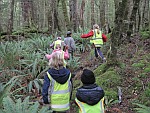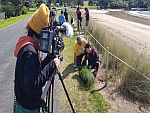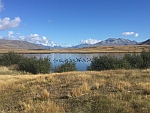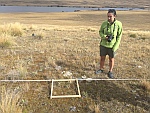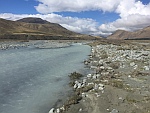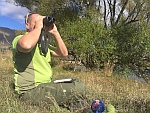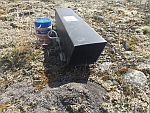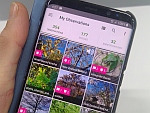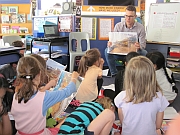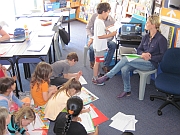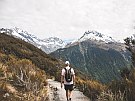 All LEARNZ field trips targeting primary and secondary schools are closely linked to the New Zealand Curriculum.
All LEARNZ field trips targeting primary and secondary schools are closely linked to the New Zealand Curriculum.
Key concepts for Explore Outdoors
Adventure, biodiversity, changing values, citizen science, citizenship, community involvement, conservation, ecology, environment, environmental impacts, expedition, future focus, goal setting, guardianship, hauora, heritage, human impacts, identity, kaitiaki, kaitiakitanga, land use, managing resources, monitoring change, native species, navigation, Outdoor Education, outdoor pursuits, people and the environment, people in the past, personal health, perspectives, pests, physical activity, resource use, restoration, risk management, science, scientific research, sustainability, threatened species, tramping, values, viewpoints, weather.
The New Zealand Curriculum - NZC
Key Competencies
LEARNZ virtual field trips contribute to the development of all five key competencies:
| Key Competencies | Examples of Related Field Trip Components |
| Thinking | Constructing pre-organised and spontaneous questions to put to experts during Web conferences. |
| Using language, symbols and texts | Interpreting and making meaning of a variety of language and symbols in the Background Pages and throughout the web site. |
| Managing self | Numerous content-related Activities provide students with chances to engage with the material and create their own interpretation of the content. |
| Relating to others | Videos connect students with a range of expert opinions. Students listen actively when seeking answers to video questions. |
| Participating and contributing | LEARNZ Virtual Field Trips are an ideal medium for group-based topic inquiry. They also enable students to transfer new learning into the context of their own communities where they are encouraged to take action. |
(See page 12-13 NZC 2007)
Values
The Explore Outdoors field trip encourages, models and explores these values:
- innovation, inquiry and curiosity
- diversity
- community and participation
(see page 10 NZC 2007).
E-learning and pedagogy
The Explore Outdoors field trip directly involves learning that is supported by information and communication technology (ICT). In particular, the trip will:
- Assist the making of connections by enabling students to enter and explore new learning environments, overcoming barriers of distance and time.
- Facilitate shared learning by enabling students to join or create communities of learners that extend well beyond the classroom.
- Enhance opportunities to learn by offering students virtual experiences and tools that save them time, allowing them to take their learning further (Page 36 NZC 2007).
Health and Physical Education
| Strand | Achievement Aims |
|
Personal health and physical development - A
|
A2 Regular physical activity Level 2: Experience creative, regular, and enjoyable physical activities and describe the benefits to well-being. Level 3: Maintain regular participation in enjoyable physical activities in a range of environments and describe how these assist in the promotion of well-being. Level 4: Demonstrate an increasing sense of responsibility for incorporating regular and enjoyable physical activity into their personal lifestyle to enhance well-being A3 Safety management Level 2: Identify risk and use safe practices in a range of contexts. Level 3: Identify risks and their causes and describe safe practices to manage these. Level 4: Access and use information to make and action safe choices in a range of contexts. |
|
Healthy communities and environments - D
|
D1 Societal attitudes and values Level 2: Explore how people’s attitudes, values, and actions contribute to healthy physical and social environments. Level 3: Identify how health care and physical activity practices are influenced by community and environmental factors. D3 Rights, responsibilities, and laws; D4 People and the environment Level 4: Specify individual responsibilities and take collective action for the care and safety of other people in their school and in the wider community. |
Social Science
| Strand | Achievement Aims |
|
Social Studies
|
Continuity and Change
Place and Environment
Identity, Culture, and Organisation
|
Science
| Strand | Achievement Aims |
|
The Nature of Science
|
Participating and contributing
Understanding about science
Communicating in science
|
|
Planet Earth and Beyond
|
Earth systems
|
Technology
| Strand | Achievement Aims |
|
Technological Knowledge
|
Technological Products
|
|
Technological Practice
|
Planning for practice
Brief development
Outcome development and evaluation
|
|
Nature of Technology
|
Nature of Technology
|
English
The selected processes and strategies indicators used in the table below are from Level three of the NZC, but aim to cover indicators from levels two to four.
| Strand | Processes and Strategies Indicators | Example of Related Field Trip Component |
|
Listening, Reading and Viewing
|
|
|
|
Speaking, Writing and Presenting
|
|
|
Geography
Level 6: Understand that natural and cultural environments have particular characteristics and how environments are shaped by processes that create spatial patterns.
NCEA Geography - Level 1
- 1.6 Describe aspects of a contemporary New Zealand geographic issue (AS91012)
- 1.8 Apply spatial analysis, with direction, to solve a geographic problem (AS91014)

